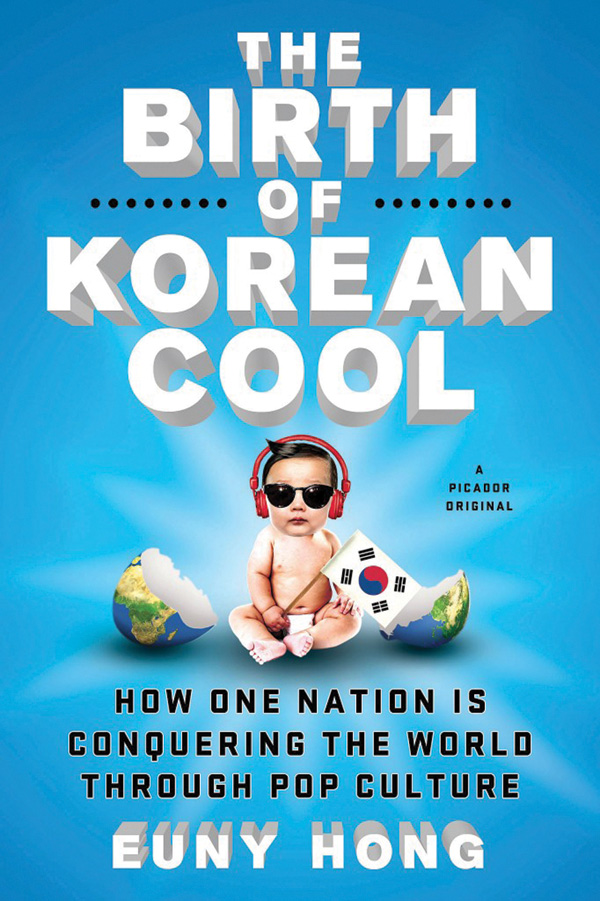by TONY KIM
When Psy’s mega-hit “Gangnam Style” was starting to blow up on the web, journalist Euny Hong did not want to have anything to do with it. After deleting several emails from friends with a link to the video, she finally gave in one day and watched the darned thing.
“Well, this is interesting,” thought Hong, not realizing that the video would reach more than a billion views and become the most viewed footage in the world.
A few months later, Hong casually mentioned to her “non-Korean” editor at The Atlantic that she actually grew up in Gangnam, an area of Seoul known for its wealthy residents and a high standard of living. The editor then proceeded to scream. Loudly. “Why did you wait all this time to tell me that?” she asked. “Please write me an article about growing up in Gangnam.”
Despite nagging doubts about readership interest in her personal story, Hong, a freelance writer whose work includes the novel Kept: A Comedy of Sex and Manners and who has been published in the New York Times, the Wall Street Journal and the Washington Post, wrote it, anyways. The article went “semi-viral” with 631 Facebook shares and 130 retweets, and would become the basis for The Birth of Korean Cool: How One Nation is Conquering the World Through Pop Culture.
The book follows the origins and development of Hallyu, or the Korean wave, the term used to describe the spread of Korean popular culture overseas. Hallyu has even reached unlikely destinations like Iran, where 80 percent of the country’s TV viewers tuned into the K-drama Jumong. “Yeah, I never knew or appreciated how much Korea is loved,” Hong said in a phone interview with KoreAm.
“People literally living in the Amazon jungle have access to [K-dramas], and it definitely proved that you don’t have to have a bunch of things in common with people to reach them.”
Since The Birth of Korean Cool’s Aug. 5 release, the reviews have been overwhelmingly positive. The Library Journal trade publication said, “Hong is a funny and uber-snarky observer and is as clever as clever can be. This is essentially a book of linked essays that goes down easy and is often laugh-out-loud funny and as spicy and memorable as the best homemade kimchi.”
Tapping her past experiences, she illustrates how a nation’s coordinated government effort propelled Korea from a formerly agrarian, culturally conservative country to a 21st-century global power in pop culture, technology and business. She weaves a persuasive and compelling narrative of the societal, economic and cultural shifts that one nation experienced in order to escape from poverty and the shame it carried from Japanese colonialism.
Though Hong intersperses personal anecdotes, such as when she recounts the pressure she faced to get double eyelid surgery, she takes great pains not to turn her experiences into blanket statements about Korean culture.
“I felt guilty about every single sentence practically because I did feel like I did have a responsibility. But there were several responsibilities, and sometimes, they were in conflict,” Hong said. “The journalist in me wants to give a fair depiction, but the Korean in me wants to show only Korea’s best parts. An educated person reading my book will come away with what I want them to come away with, like an appreciation of Korea, but [for] an ignorant person [it may] just reinforce their stereotypes.”
She especially struggled to translate the untranslatable concept of han, which is often described as a uniquely Korean sense of sadness, shame and unfulfilled retribution. Hong said han “arises from the fact that the universe can never pay off this debt to them.” Han is considered to constitute an essential characteristic of Koreans, and although some claim that it’s a disease that people can die from, Hong argued that it was a main factor in propelling the nation to prosperity.
In 1985, when Hong was 12, her family moved from the suburbs of Chicago to Korea, where she lived until she went back to the States for college. During that identity-defining period, the June Democracy Movement overthrew the autocratic ruling of Chun Doo-hwan, Korea hosted the Summer Olympics, and the K-pop craze exploded.
She recounts her time attending Korean schools and the strict discipline enforced by teachers. She writes about how her eighth-grade homeroom teacher hit every student after exams, no matter the results, and how the number of times a student got hit depended on his or her ranking. The top student would get hit only once, the second-place student twice, and so on.
Those traditions, thankfully, have faded into the past. But so too have the respect and esteem once bestowed upon teachers. “I think that’s too much in the opposite direction, and the dismantling of the teacher position happened too fast,” she said.
The writer also touches on the unprecedented rapid technological development Korea underwent, as brands like Samsung and Hyundai emerged. One of the most intriguing and surprising sections is on the gaming industry and its profitability. Hong reports, “Korean video game exports bring in 1,200 percent more revenue for the country than does K-pop. In fact, online games account for 58 percent of Korea’s pop culture export revenue.” She attributes the profits to gamers’ addictions: “Even if you love K-dramas, you’ll do a Netflix binge one weekend, but even an excessive person wouldn’t watch more than 10 hours of K-drama a week. Whereas, if you’re into video games and you’re addicted, you play 50 to 60 hours a week.”
Hong added that she may even pursue writing a story on the highly integrated virtual currency found in the gaming community.
Even as exports like gaming and music have achieved widespread fame in countries as far as Peru and Iran, whether this Korean wave will continue is uncertain. However, Hong has full faith in South Korean President Park Geun-hye’s Creative Economy Policy because it’s just the way that Koreans have always done things.
“They have these plans that sound stupid, vague and not carefully thought through, and then guess what? It turns out that it works!” Hong said. “They don’t care if people think it’s a stupid idea, and if somebody says you can’t do it, then they have to do it even more.”
Hong believes that Korea is in a truly unique position to make its culture popular worldwide, as it isn’t “forcibly” exporting its goods through war or aid like the U.S. did after World War II. Many in the Middle East may despise America, she noted, but they don’t hold that antipathy toward Korea, and that may help account for the success of K-dramas in those regions that have not embraced American programs. Meanwhile, Southeast Asian countries don’t see Korea as a political bully like Japan and China. In essence, Hong concluded it might actually be Korea’s han-filled past and underdog mentality that make it a contender to become the next global pop culture superpower.
This article was published in the August/September 2014 issue of KoreAm. Subscribe today! To purchase a single issue copy of the August/Sept. issue, click the “Buy Now” button below. (U.S. customers only. Expect delivery in 5-7 business days).










